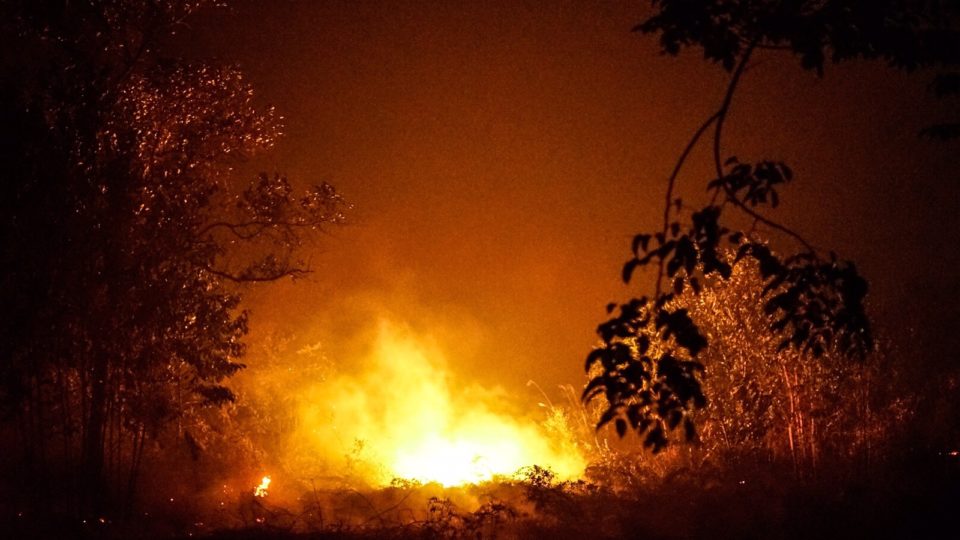In a major victory for the environment, Indonesia’s Supreme Court has upheld a lower court verdict ordering PT National Sago Prima (NSP), a sago plantation company, to pay IDR 1 trillion (US$69 million) in fines for causing forest fires in Riau in 2015.
The lawsuit against NSP was filed by Indonesia’s Ministry of Environment and Forestry (KLHK) to the South Jakarta District Court in 2016. KLHK presented evidence that the 2015 fires had originated from lands owned and managed by NSP. The court found that the fires has been caused by NSP’s negligence and ordered the company to pay IDR 319 billion in fines and another IDR 753 billion to cover the cost of rehabilitating the approximately 3,000 hectares of land on the Meranti Islands in Riau affected by the fires.
NSP appealed the decision to the Jakarta High Court and, after losing there, to the Supreme Court. The country’s high court announced it had upheld the decision against the company on its website yesterday, with the judges noting that the evidence showed that NSP was absolutely responsible for the fires.
“Basically, the company must be responsible for causing the fire in accordance with the principle of absolute liability,” Supreme Court chief justice Andi Samsan Nganro said in his ruling as quoted by Detik.
The IDR 1 trillion fine is the largest ever imposed on a plantation company for environmental damages in Indonesia and the ruling offers legal precedence for other environmental damage cases filed against similar companies — particularly palm oil companies that have been blamed for numerous widespread and highly destructive forest fires in Indonesia in recent years.
KLHK has not yet issued a statement in regards to the ruling, but this is what Patra M Zen, the ministry’s lead attorney on the case, said following the South Jakarta Court’s decision in 2016.
“We really appreciate this ruling because this decision is not just for us, but also for the people of Riau, especially the people of Meranti,” Patra said. “This lawsuit is to protect the interests of the people there who have been greatly disadvantaged by these forest fires. If we remember last year, there were a lot of losses ranging from health effects, airports that were closed to people’s economic losses.”




